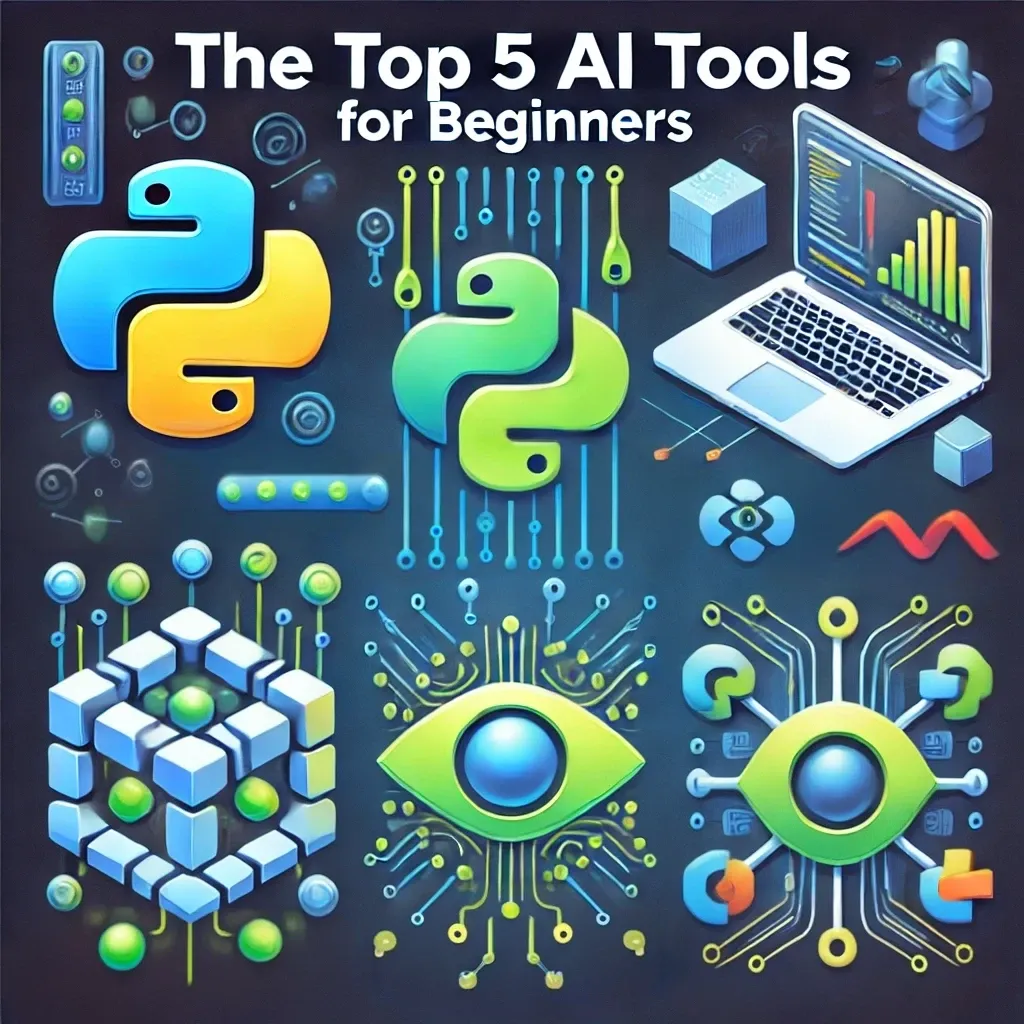Why Start with the Right AI Tools?
Artificial Intelligence (AI) is an exciting and rapidly growing field, but getting started can be overwhelming due to the vast number of tools available. Whether you're a complete beginner or looking to expand your skills, having the right tools is crucial for a smooth learning experience. In this post, we'll introduce you to the top 5 AI tools that are perfect for beginners, helping you kickstart your journey into the world of AI.
Tool 1: Python
Python is the most popular programming language for AI, and for good reason. It's simple, versatile, and has an extensive library of packages designed specifically for data science and machine learning.
- Why Python?
Python’s syntax is easy to understand, making it perfect for beginners. It also has a large community, which means plenty of resources, tutorials, and support are available. - Best Uses: Data analysis, machine learning, deep learning, and natural language processing.
- Getting Started: Official Python Documentation | Python for Data Science Handbook
Tool 2: Jupyter Notebooks
Jupyter Notebooks is an open-source web application that allows you to create and share documents containing live code, equations, visualizations, and narrative text. It is one of the most popular tools for data scientists and AI practitioners.
- Why Jupyter Notebooks?
It provides an interactive environment for writing and running code, which is ideal for experimenting with different AI models and techniques. - Best Uses: Data cleaning and transformation, statistical modeling, and machine learning.
- Getting Started: Jupyter Official Website | Beginner's Guide to Jupyter Notebooks
Tool 3: Google Colab
Google Colab (Colaboratory) is a free, cloud-based Jupyter notebook environment that provides all the functionality of Jupyter Notebooks, with the added benefit of free access to GPUs and TPUs for accelerated computing.
- Why Google Colab?
It requires no installation and is great for running heavy AI models without worrying about hardware limitations. Plus, it's integrated with Google Drive for easy file storage and sharing. - Best Uses: Running machine learning models, deep learning projects, and collaborating on AI research.
- Getting Started: Google Colab Introduction | Deep Learning with Google Colab
Tool 4: TensorFlow
TensorFlow is an open-source platform developed by Google for building and deploying machine learning models. It is one of the most widely used deep learning frameworks and offers a flexible ecosystem of tools, libraries, and community resources.
- Why TensorFlow?
It provides comprehensive support for neural networks, has a strong community, and is ideal for production-level machine learning. - Best Uses: Deep learning, computer vision, natural language processing, and reinforcement learning.
- Getting Started: TensorFlow Official Website | TensorFlow for Beginners
Tool 5: Scikit-Learn
Scikit-Learn is a powerful Python library for simple and efficient data analysis and machine learning. It offers a wide range of algorithms for classification, regression, clustering, and dimensionality reduction.
- Why Scikit-Learn?
It is user-friendly, integrates well with other libraries like NumPy and pandas, and is ideal for beginners to experiment with basic machine learning models. - Best Uses: Data preprocessing, building simple machine learning models, and statistical modeling.
- Getting Started: Scikit-Learn Official Website | A Beginner’s Guide to Scikit-Learn

Conclusion
These tools provide an excellent starting point for anyone looking to dive into AI. Python, Jupyter Notebooks, Google Colab, TensorFlow, and Scikit-Learn are not only user-friendly but also powerful enough to handle complex AI tasks. By mastering these tools, you'll be well on your way to becoming proficient in AI and data science.
Interactive Quiz: Test Your AI Tool Knowledge
Question 1: Which tool is a cloud-based environment that offers free access to GPUs for AI projects?
- A) Jupyter Notebooks
- B) Google Colab
- C) TensorFlow
- D) Scikit-Learn
Correct Answer: Google Colab
Question 2: What is TensorFlow primarily used for?
- A) Building and deploying machine learning models
- B) Data cleaning and transformation
- C) Running Python code interactively
- D) Statistical modeling
Correct Answer: Building and deploying machine learning models




